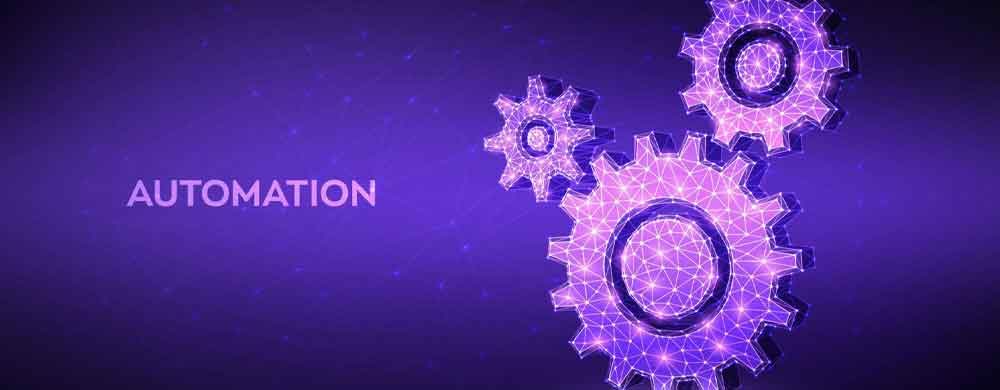Currently, DevOps has become a crucial practice for a successful IT and software company to survive in the market. DevOps is a combination of operations and software development teamwork and relies heavily on automation.
The DevOps culture is based on knowledge sharing and tools sharing, which enables software development and IT operations to work as one to achieve efficiency and effectiveness in software development, deployment, and operations. In other words, it’s a practice that promotes communication, collaboration, and integration between software developers and IT operations professionals, who typically work in separate departments’ lifecycles. And in fact, DevOps is a cultural change.
It isn’t just a job title; it is a way of working that allows communication between teams, individuals, and departments on a much more efficient level.
DevOps: How does it work?
The development & operation team works together to achieve the desired result starting with design and development, testing automation, continuous integration, and continuous delivery.
Structure of DevOps,
The developer environment typically involves planning development based on customer requirements, followed by coding and unit testing. The resulting packages are then sent to the operations team for deployment, system integration, and user acceptance testing. Next, an automation engineer will automate the product and resolve any issues. Finally, the operational team will monitor and deploy the application before delivering it to the customer. If any issues arise, the process is repeated. This highlights how the complete DevOps cycle continues until a perfect output is achieved.

DevOps is a practice that helps organizations to become more agile and responsive to customer needs. This helps to reduce manual processes and increase speed and accuracy in releasing updates.
DevOps practices include:
- Continuous integration and continuous delivery (CI/CD)
- Infrastructure as code
- Automated testing and monitoring
- Collaboration between the development and operations teams
Best practices help development and operation teams to deliver products with a flawless user experience.
DevOps also includes the use of configuration management tools,
- Such as Ansible, Chef, and Puppet.
- Version control systems like Git
- CI/CD automation tools like Jenkins and TravisCI
- Containerization and orchestration tools like Docker and Kubernetes
- Monitoring and logging tools like Prometheus and Elasticsearch
By using these practices and tools, teams can create a streamlined workflow to quickly and reliably deliver software changes to customers. It ensures that the configurations are consistent and up to date and that the system runs smoothly and efficiently. This helps organisations respond more quickly to changing business needs and stay competitive in today’s fast-paced digital economy.
Read more? Look into – Goodbye Selenium. The new era of UI Test Automation with Playwright Started
DevOps Helps Automation Engineer
DevOps and automation engineering are closely related, as both focus on improving software development processes and the efficiency of software delivery. Here are some ways that DevOps can help automation engineers:
Collaboration: DevOps encourages collaboration and communication between different teams involved in software development, including automation engineers. This can help automation engineers understand the needs of other teams and create automation solutions that meet those needs.
Continuous Integration and Deployment: DevOps practices such as continuous integration and deployment can help automation engineers ensure that their automated tests are run as part of the software delivery pipeline, providing rapid feedback on the quality of code changes.
Infrastructure as Code: DevOps promotes the use of infrastructure as code, which means that automation engineers can create automated infrastructure deployment scripts that can be version controlled and tested alongside the code.
Automated Testing: DevOps encourages using automated testing as a key part of the software delivery process. Automation engineers can leverage this by creating automated test suites that can be run quickly and repeatedly, ensuring that code changes do not introduce regressions.
Monitoring and Logging: DevOps emphasizes monitoring and logging of production systems. Automation engineers can use this data to improve their automated tests by creating tests that check for specific error messages, system performance, or other metrics.
Overall, DevOps provides a framework and set of practices to help automation engineers be more effective in their roles, leading to higher-quality software delivered more quickly and reliably.
Challenges in DevOps for Automation Engineers
DevOps requires high collaboration between developers, operations, and other teams; it is not easy to achieve, especially in a large organization.
Automation engineers must also ensure their code is reliable, secure, and maintainable. Moreover, automation engineers must ensure that the code they write is compatible with other tools and services.
Wrapping up
As the automation process consumes less time, DevOps also intends to provide better business value promptly and securely. Yet most organizations seek DevOps to improve the value of the business and development lifecycle, which helps to stay ahead in the competitive market. DevOps best practices bring innovation to customer requirements without any risk factors.
Learn more about DevOps with us…
Author’s Bio:

As CEO of TestLeaf, I’m dedicated to transforming software testing by empowering individuals with real-world skills and advanced technology. With 24+ years in software engineering, I lead our mission to shape local talent into global software professionals. Join us in redefining the future of test engineering and making a lasting impact in the tech world.
Babu Manickam
CEO – Testleaf






